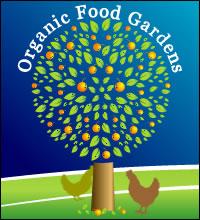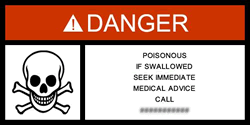Live with Less Chemicals in Your Lives
How much do you spend on cleaning products a week? Statistics for this vary it’s from 25% – 35%, the aisle in which cleaning products in the supermarket are kept is an extremely toxic mix and the majority of people are affected by these chemicals.
How many products would you have in a cupboard at home with one of these or similar cautions?
How easy it is to reduce the chemicals used in our homes?
Waste avoidance and minimisation is not just volume, its toxicity also.
As consumers, each one of us has the power to contribute to a healthier future for our families.
A few questions we can ask ourselves
- Do we need a different chemical cleaning agent for each job?
- Does using less toxic cleaning solutions rather than strong chemical cleaning agents, improve our family’s health?
- How clean is clean?
- Advertising, does this make us believe that chemical cleaning products are safe for our families?
- If the product claims to kill all known bacteria, what will it do to us?
Many Bacteria are important to us. - Is it worth starting to change how we clean our homes, after all we spend 80% of our time indoors.
- It is simple and easy for us to make effective and cheap cleaning alternatives.
- What are the ingredients in personal care products made from?
- Every little bit counts towards a healthier and sustainable world.
BASIC SHOPPING LIST FOR NON TOXIC CLEANING
Bicarb Soda (sodium bicarbonate, baking soda)
Cheap, many uses around the home, grandmother may have mixed it with water to cure heartburn that is how safe it is.
Uses include:
- Toothpaste
- Removing stains
- Softening water
- Deodorant and deodoriser – Takes away offensive smells instantly
*Always, Test On Small Area of material BEFORE USING
Borax
A natural occurring mineral salt BUT is poisonous when swallowed.
Uses
- Stain remover
- Slight bleaching agent
- Pest controller
- Natural deodorant
- Fabric and Water softener
Eucalyptus oil
It should be called ‘Wonder Stuff’. It does the following and more, keep out of children’s reach if swallowed it is poisonous.
- Toilet Cleaner
- Cleaning bathroom sinks
- Wool wash
- Insect repellent
- Removing grease, gum & adhesive material from paintwork
- Removing stubborn stains from clothes
- Makes everything Smell Clean!!!
White Vinegar
The cheapest is great for cleaning, it’s a mild acid to neutralise grease and soap residue.
Uses
- Glass cleaner
- Anti mould agent
- Mild disinfectant
- Bleach
- Deodorant
Washing Soda Crystals or Powder
Uses
- Water Softener
- Stain/grease remover
- Bath Salts
- Drain Cleaner
- Degreaser
- Silver tarnish remover
Laundry Soap
Pure soap is not a detergent, it’s made from natural products vegetable oils and animal fats. Where the majoirty of detergent is made for coal tar and petroleum.
Soap has many, many uses
- Woolens
- Kitchen
- Bathroom
- Laundry
- Garden Spray
Salt
Uses include
- Antiseptic/disinfectant
- Abrasive
- Prevent colours running in wash
- Scouring
Essential Oils
There are many different types of Essential oils you can use around the home that do the same job safely with out chemicals.
The following are oils I choose, you may not like the smell; smell is such a personal thing.
REMEMBER:
When using essential oils read the label, some oils cannot be used when you are pregnant, others may burn the skin if they are not mixed with other oils. If your liver and kidneys are weak in any way check with your doctor before using these oils.
Lavender
- Antiseptic
- Antiviral
- Antifungus
- Reduces inflammation
- Heals skin cells
- Wounds
- Skin
- Stings
Tea Tree
- Antibacterial
- Antifungus
- Antiviral
- Stimulates immune system
- Healing for wounds
Lemongrass
- Insect repellent
- Anti mould
- Antiseptic wash
- Skin infections
- Give you a lift
EXTRA CLEANING AIDS
Methylated Spirits
• Disinfectant
• Stain remover
• General cleaner
Cloudy Ammonia
The fumes are a bit much so you have to be careful, not sure why it’s classed as non toxic
- Floors
- Tiles
- Painted surfaces
- Woolens
Lemons
- Mild bleach (for hair also)
- Deodorant
- Cleaning agent
Olive Oil
For cleaning, it doesn’t need to be organic but why not support the organic industry anyway
- For wood & leather
- Furniture polish Beeswax
- Furniture polish
Steel Wool
When the going gets tough, use Steel Wool
- Removes stubborn dirt
Take advantage of our
Composting Services
Teresa will advise and also set up
- your compost area
- worm farms
- and also advise you on improvements for your existing compost areas
Please Contact Us for a quote to assist you



